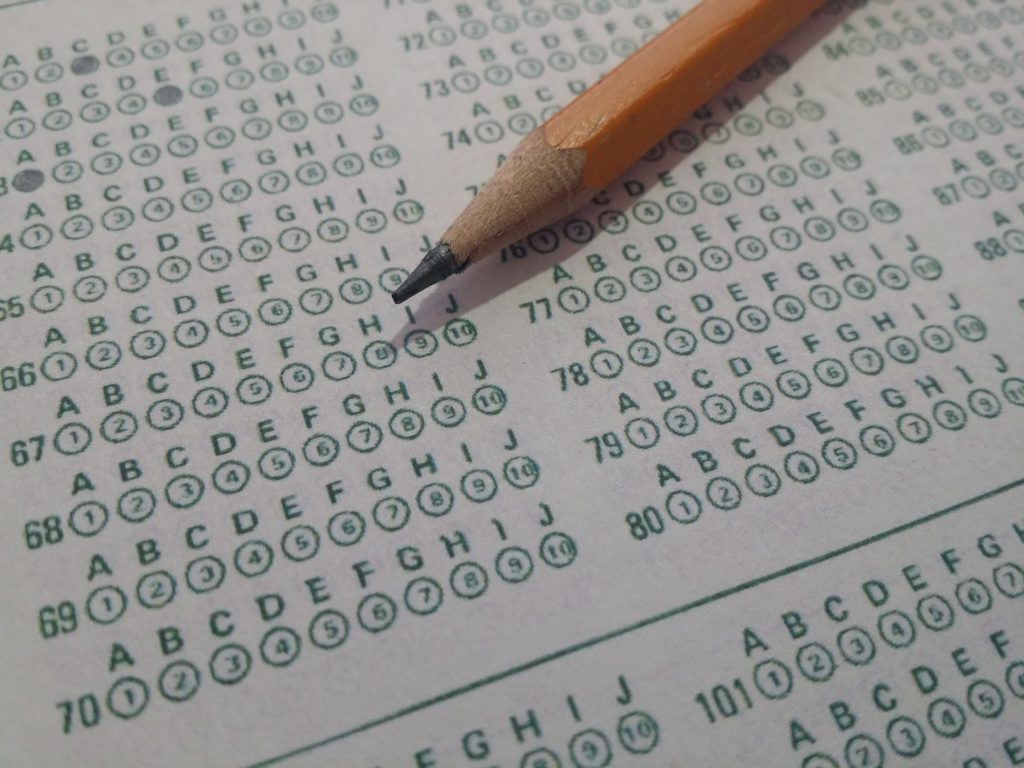UPDATE, 6/21/2018: As anticipated and widely reported, Algeria and Iraq are cutting access to the internet for exams, impacting everyone: emergency workers, business owners, media organizations. There has to be a better way. Please join us in calling on authorities in Algeria, Iraq, and elsewhere to #KeepItOn.
…
UPDATE, 6/2/2017: As anticipated, Ethiopia this week shut down the internet nationwide for exams and Dyn Research is reporting on a series of exam shutdowns in Syria.
…
In Iraq this Spring, thousands of sixth graders will sit down to take a placement exam into secondary school. And if history serves as a guide, the government will shut down the internet to stop them from cheating — cutting access throughout the entire country. Everyone will be disconnected, from businesses to emergency workers, to hospitals and government agencies, all to stop students from sharing exam answers with each other. This will happen in a country with major security concerns, where communication through apps and the internet can sometimes mean the difference between life and death.
Over the past few years, Access Now has documented more than 30 intentional disruptions of the internet by governments to stop cheating on school exams. This is a global issue that affects countries as diverse as Algeria, Congo-Brazzaville, Ethiopia, India, Iraq, Syria, and Tunisia. Many of these shutdowns are nationwide blackouts, but not all of them. Some, such as the ones in Tunisia, are localized to within a few blocks of the examination sites, while in other countries, such as Algeria, governments have targeted specific apps.
Why are governments ordering shutdowns for school exams?
The connective tissue between these shutdowns is that the exams are extremely important for a student’s academic and professional career. They can determine placement for students who may not advance to further schooling if they are not successful. As a result, some students — and even teachers and parents — feel compelled to cheat however they can, whether through scribbling answers on their sneakers or leaking them online through apps like WhatsApp.
Shutdowns for exams sometimes take place in the context of a highly charged political situation. In Ethiopia, for example, school closures in the Oromia region prevented students from attending school, leaving residents afraid that university entrance exams would privilege students from other regions. The exam answers may have been leaked to level the playing field, and the government was forced to postpone the exam. It then chose to block Facebook, Twitter, Instagram, and Viber during the retake. In other countries, such as India, the state government of Gujarat — not the national government — ordered the shutdown for a major accounting exam.
Exact statistics are hard to come by, but many governments take the problems with cheating seriously enough to continue to resort to shutting down the entire internet for them — without considering the drastic consequences for human rights and economies.
No one wants this to happen
No one wants to be cut off from the internet. We know that shutdowns harm economies, and as much as $2.4 billion was drained from the global economy between 2015 and 2016, according to the Brookings Institution. We also know that internet shutdowns are early warning signs of atrocities, and some governments use them in a misguided and futile attempt to quell dissent. But disruptions around school exams are a unique issue. They impact many different groups, such as students, teachers, parents, proctors, internet service providers, telecommunications companies, internet companies, testing services, and education agencies, and it’s clear that most of them would prefer an alternative to an internet blackout. Over the next few months, we’re going to work with these stakeholders to come up with meaningful solutions, with the mutual goal of ending internet shutdowns for school exams.
We can’t afford to wait
If we don’t act soon, we risk allowing governments to continue plunging their entire countries into darkness over school exams. We also risk governments turning to technological solutions that could harm student privacy and digital rights. For example, in Tunisia, the government is planning to issue a secretive technology during its coming June examination period, but has refused to provide details about it. India too has experimented with new jamming devices in medical and engineering colleges. Some solutions to exam cheating could create even more problems, and it’s important to gather stakeholders to develop durable, rights-respecting solutions.
We hope you join us as we move to end every shutdown that we can, regardless of rationale. Even when the purpose is benign, shutdowns harm our rights, and they have to stop.
About the #KeepItOn campaign
The #KeepItOn campaign, convened by Access Now, consists of 115 organizations from 52 countries that are devoted to fighting internet shutdowns. Since the campaign launched at RightsCon Silicon Valley in 2016, we’ve seen major victories: the UN Human Rights Council condemned internet shutdowns; 30 governments of the Freedom Online Coalition spoke out against shutdowns, as well as the GSMA, the Global Network Initiative, and the African Commission on Human and Peoples’ Rights. And, together with local activists, we helped end major internet shutdowns in Cameroon and Gambia.
You can find out more about how you can take action at https://accessnow.demo.cshp.co/keepiton, or use the hashtag #KeepItOn on social media.
